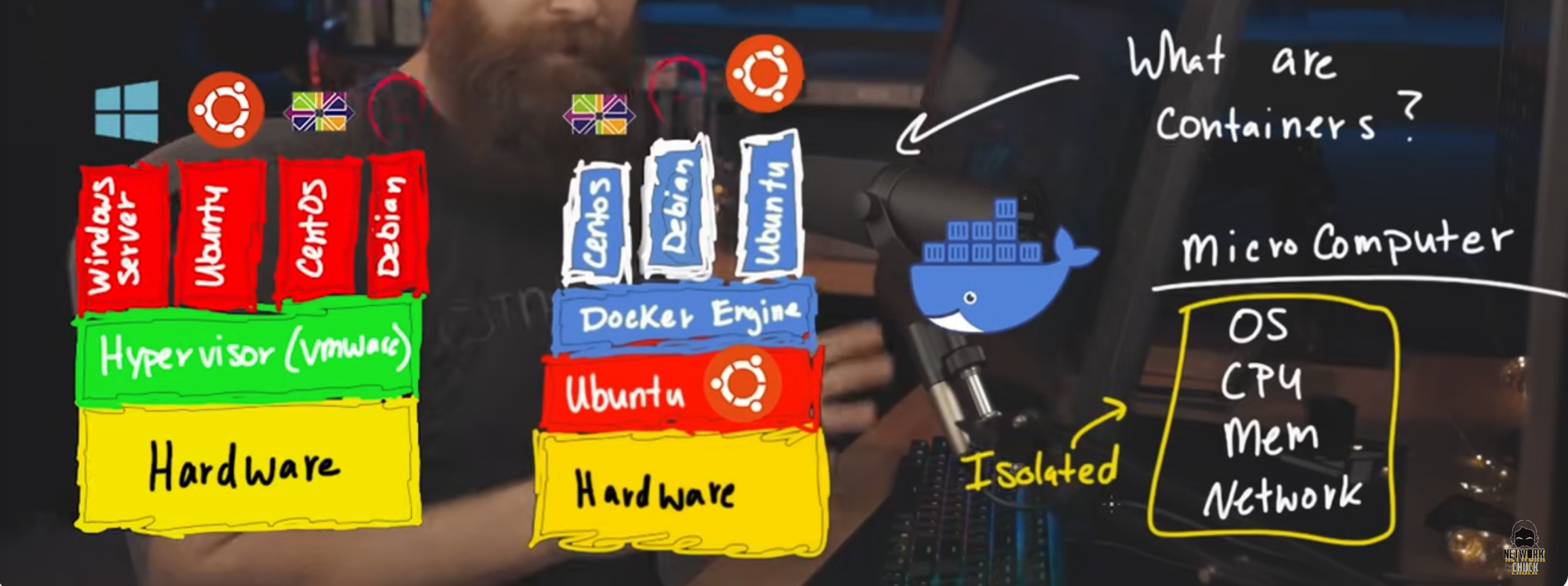Code
docker --versionTony D
March 24, 2025
A comprehensive introduction to Docker, covering essential commands, Dockerfiles, and an example of building and managing an RStudio Docker image.
This document provides a comprehensive introduction to Docker, a platform for developing, shipping, and running applications in containers. It covers the essential Docker commands for managing images and containers, from pulling and running images to stopping and deleting containers. The guide also explains the role of Dockerfiles in building custom images and provides a practical example of creating an RStudio image with Tidyverse pre-installed. This document is designed to be a helpful resource for anyone getting started with Docker.

https://www.docker.com/
https://hub.docker.com/
A Dockerfile is a text file with instructions to build a Docker Image
When we run a Dockerfile, Docker image is created
When we run the docker image, containers are created
There is a example to bulid a Rstudio Docker with tidyverse
tidyverse_4.3.3.Dockerfile
FROM docker.io/library/ubuntu:jammy
ENV R_VERSION="4.3.3"
ENV R_HOME="/usr/local/lib/R"
ENV TZ="Etc/UTC"
COPY scripts/install_R_source.sh /rocker_scripts/install_R_source.sh
RUN /rocker_scripts/install_R_source.sh
ENV CRAN="https://p3m.dev/cran/__linux__/jammy/2024-04-23"
ENV LANG=en_US.UTF-8
COPY scripts/bin/ /rocker_scripts/bin/
COPY scripts/setup_R.sh /rocker_scripts/setup_R.sh
RUN /rocker_scripts/setup_R.sh
COPY scripts/install_tidyverse.sh /rocker_scripts/install_tidyverse.sh
RUN /rocker_scripts/install_tidyverse.sh
ENV S6_VERSION="v2.1.0.2"
ENV RSTUDIO_VERSION="2023.12.1+402"
ENV DEFAULT_USER="rstudio"
COPY scripts/install_rstudio.sh /rocker_scripts/install_rstudio.sh
COPY scripts/install_s6init.sh /rocker_scripts/install_s6init.sh
COPY scripts/default_user.sh /rocker_scripts/default_user.sh
COPY scripts/init_set_env.sh /rocker_scripts/init_set_env.sh
COPY scripts/init_userconf.sh /rocker_scripts/init_userconf.sh
COPY scripts/pam-helper.sh /rocker_scripts/pam-helper.sh
RUN /rocker_scripts/install_rstudio.sh
EXPOSE 8787
CMD ["/init"]
COPY scripts/install_pandoc.sh /rocker_scripts/install_pandoc.sh
RUN /rocker_scripts/install_pandoc.sh
COPY scripts/install_quarto.sh /rocker_scripts/install_quarto.sh
RUN /rocker_scripts/install_quarto.sh
COPY scripts /rocker_scriptsrun at backend
Rstuido server is open at: http://localhost:8787/
user name is rstudio
password is show on terminal
exit docker linux
---
title: "Docker使用介绍"
subtitle: "Docker intro"
author: "Tony D"
date: "2025-03-24"
categories:
- Tool
image: "images/1_2QYim4bJ9LyO1pziQNJXMA.jpg"
execute:
warning: false
error: false
eval: false
---
A comprehensive introduction to Docker, covering essential commands, Dockerfiles, and an example of building and managing an RStudio Docker image.
This document provides a comprehensive introduction to Docker, a platform for developing, shipping, and running applications in containers. It covers the essential Docker commands for managing images and containers, from pulling and running images to stopping and deleting containers. The guide also explains the role of Dockerfiles in building custom images and provides a practical example of creating an RStudio image with Tidyverse pre-installed. This document is designed to be a helpful resource for anyone getting started with Docker.

# Download docker
https://www.docker.com/
# Login docker hub
https://hub.docker.com/
# check docker version
```{bash}
docker --version
```
# open docker app and check docker info
```{bash}
docker info
```
# download docker image from docker hub
```{bash}
docker pull alpine
```
# list all downloaded docker images
```{bash}
docker images
```
# run docker from image
```{bash}
docker run alpine
```
# list all running docker containers
```{bash}
docker ps
```
# list all docker containers, running or previously run
```{bash}
docker ps -a --size
```
# run docker alpine linux terminal in mac
```{bash}
docker run -it --rm alpine /bin/ash
```
# Docker file
A Dockerfile is a text file with instructions to build a Docker Image
When we run a Dockerfile, Docker image is created
When we run the docker image, containers are created
There is a example to bulid a Rstudio Docker with tidyverse
## create Docker file
```{r filename='tidyverse_4.3.3.Dockerfile'}
FROM docker.io/library/ubuntu:jammy
ENV R_VERSION="4.3.3"
ENV R_HOME="/usr/local/lib/R"
ENV TZ="Etc/UTC"
COPY scripts/install_R_source.sh /rocker_scripts/install_R_source.sh
RUN /rocker_scripts/install_R_source.sh
ENV CRAN="https://p3m.dev/cran/__linux__/jammy/2024-04-23"
ENV LANG=en_US.UTF-8
COPY scripts/bin/ /rocker_scripts/bin/
COPY scripts/setup_R.sh /rocker_scripts/setup_R.sh
RUN /rocker_scripts/setup_R.sh
COPY scripts/install_tidyverse.sh /rocker_scripts/install_tidyverse.sh
RUN /rocker_scripts/install_tidyverse.sh
ENV S6_VERSION="v2.1.0.2"
ENV RSTUDIO_VERSION="2023.12.1+402"
ENV DEFAULT_USER="rstudio"
COPY scripts/install_rstudio.sh /rocker_scripts/install_rstudio.sh
COPY scripts/install_s6init.sh /rocker_scripts/install_s6init.sh
COPY scripts/default_user.sh /rocker_scripts/default_user.sh
COPY scripts/init_set_env.sh /rocker_scripts/init_set_env.sh
COPY scripts/init_userconf.sh /rocker_scripts/init_userconf.sh
COPY scripts/pam-helper.sh /rocker_scripts/pam-helper.sh
RUN /rocker_scripts/install_rstudio.sh
EXPOSE 8787
CMD ["/init"]
COPY scripts/install_pandoc.sh /rocker_scripts/install_pandoc.sh
RUN /rocker_scripts/install_pandoc.sh
COPY scripts/install_quarto.sh /rocker_scripts/install_quarto.sh
RUN /rocker_scripts/install_quarto.sh
COPY scripts /rocker_scripts
```
## bulid Docker image from dockerfile
```{bash}
docker build -f tidyverse_4.3.3.Dockerfile -t proj:myapp .
```
## run Docker image
```{bash}
docker run -p 8787:8787 proj:myapp
```
run at backend
```{bash}
docker run -d proj:myapp
```
Rstuido server is open at: http://localhost:8787/
user name is rstudio
password is show on terminal
## go inside docker containers with containers id
```{bash}
docker exec -it b28a1b8eeeb6 sh
```
exit docker linux
```{bash}
exit
```
## stop container with container id
```{bash}
docker stop b28a1b8eeeb6
```
## restart container with container id
```{bash}
docker start b28a1b8eeeb6
```
## delete a stop container
```{bash}
docker rm -f b28a1b8eeeb6
```
## delete image with image id
```{bash}
docker rmi -f 7e1a4e2d11e2
```